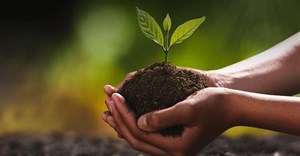
Subscribe & Follow
Jobs
- Head of Performance Marketing South Africa
- LinkedIn Outreach Assistant - Remote Cape Town
- Creative Content Video Editor Johannesburg
- Influencer Campaign Manager Cape Town
- Pioneering Coordinator Cape Town
- Video Editor for Social Media Content Cape Town
- Social Media Manager and Strategist Cape Town
- Junior Digital Art and Social Media Marketing Coordinator Johannesburg
- Multi Media Journalist | South Coast Sun Durban
#Covid-19 in South Africa: How coronavirus has broken borders, bans and business plans [a social media analysis]
Going beyond borders
According to WHO and as of 25 March 2020, there are over 400,000 confirmed cases globally, with 196 countries affected. While China and Italy are the top two countries, respectively, with the most confirmed cases of Covid-19, the USA is the top country to be talking about coronavirus on social media (27.23%), as US citizens have also been making use of online forums and message boards to have social conversations about Covid-19. Rounding up the top three countries talking about the coronavirus are the UK (3.54%) and Spain (2.92%).
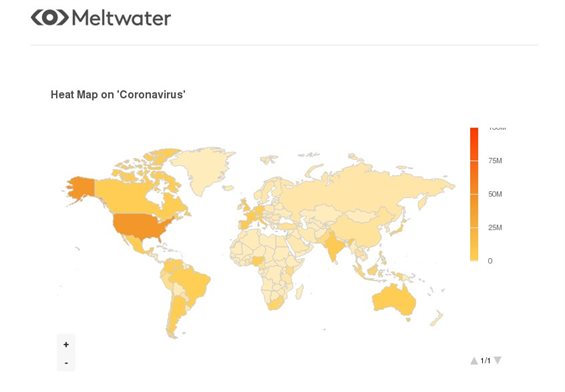
Data from a social media sentiment analysis indicates that the general consensus around coronavirus is progressively negative around the world, with 83% of social media mentions on ‘coronavirus’ being negative in March. These feelings are attributed to the virus’s impact on stock markets, working environments, restrictions put in place, the sickness and ill-health of citizens around the world, fatality rates and countries being on lockdown.
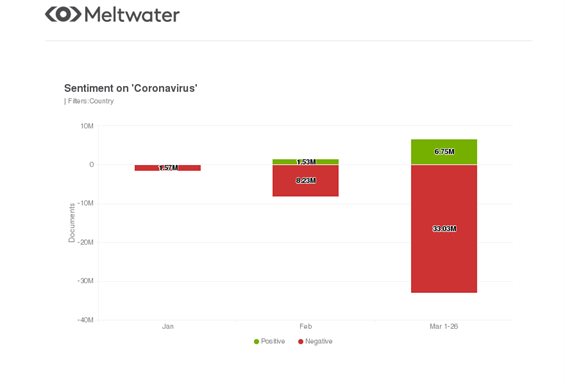
While ‘coronavirus’ has made waves in many news media articles around the world, in South Africa, users have been predominantly talking about the virus on social media, with ‘#CoronavirusInSA’ emerging as a hashtag being used to keep users updated and engaged with news on the virus in the country.
So far, there have been a total of 6 times where social media mentions in South Africa using the hashtag ‘#CoronavirusInSA’ were more than 10,000 per day, exceeding the daily global news media mentions on ‘coronavirus’.
Here are the dates on which this occurred, and what happened in South Africa on those dates respectively:
- 7 March 2020 – reactions to the first confirmed case of the coronavirus in South Africa
- 12 March 2020 – Twitter account ‘EWN Reporting’ tweeting about the first local transmission case of coronavirus in the Free State
- 15 March 2020 – university institutions announcing that students have 72 hours to vacate their residences
- 18 March 2020 – President Ramaphosa briefing the media on the restrictions that have been put in place to help prevent the spread of coronavirus
- 23 March 2020 – number of confirmed cases rose to 274; President Ramaphosa addresses the nation and implements a 21-day national lockdown from midnight 26 March 2020
- 24 March 2020 – number of confirmed cases rose to 554
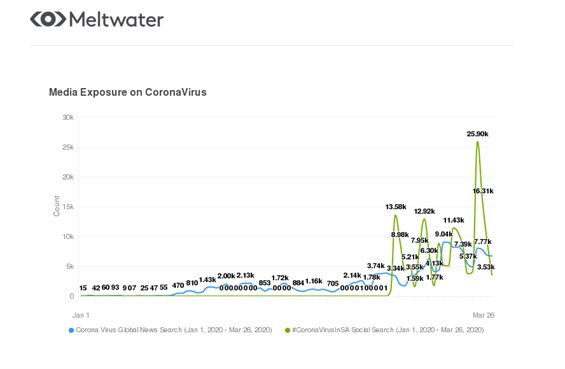
Reacting to bans
A number of countries around the world – such as Germany, France, Japan and the Dominican Republic – have implemented travel bans and restrictions in an effort to ‘flatten the curve’ and prevent the spread of the virus.
Since the beginning of March, there have already been over 170,000 global social media conversations that mention ‘travel bans’ in relation to the coronavirus.
Domestic coronavirus infections in China hit zero as the virus wreaks greater damage in other parts of the world, prompting many governments to impose quarantines and travel bans https://t.co/a7wOex5i8Y via @WSJ
— Stan Kiernozek �� (@skiernozek) March 19, 2020
While other countries had already implemented travel bans, on 5 March 2020, the South African Department of Health Twitter account tweeted that travel bans had not been put in place in the country and that the government would be monitoring the situation.
There is no travel ban presently in South Africa.Government will increase vigilance to countries who have coronavirus outbreak #CoronaVirusUpdate #COVID19
— Department of Health (@HealthZA) March 5, 2020
But, following this tweet, there was an increase in South African social media users engaging with ‘#CoronavirusInSA’ as this was also the day that the first case of the coronavirus was confirmed in South Africa.
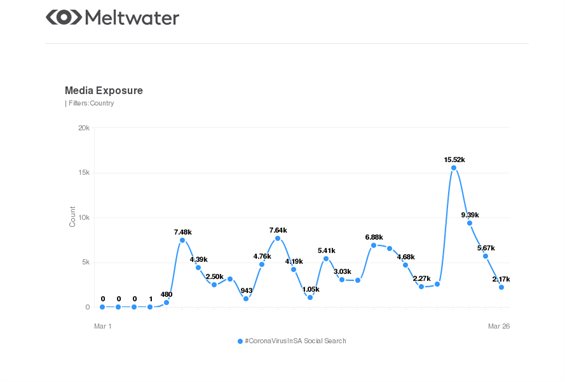
Trending themes that emerged on social media mentions that included ‘travel bans’ and ‘#CoronavirusInSA’ include:
- ‘Positive spin’ and ‘Tourism lecturer’ – which relates to a Newzroom Afrika tweet about a tourism lecturer’s opinion on the travel ban in the USA potentially boosting tourism in South Africa
- ‘Economic emergency plan’, ‘new governance structure’ and ‘school closure’ referring to a tweet shared by influential social media user, Ferial Haffajee, and her thoughts on #CoronavirusInSA
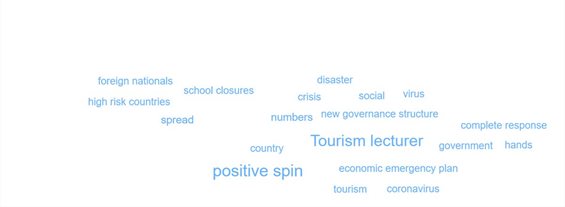
The impact on industries and society
With travel bans and restrictions in place, as well as certain countries, like South Africa, now officially on lockdown, the impact of the ‘coronavirus’ have been felt in other ways – including businesses across various industries and society overall.
As one of the top news media sources reporting on ‘coronavirus’ globally, The Limited Times reported on how the travel and tourism industry had been impacted by the coronavirus, due to the number of international travel bans and restrictions that many countries have made.
![#Covid-19 in South Africa: How coronavirus has broken borders, bans and business plans [a social media analysis]](https://biz-file.com/c/2003/546198.png)
For South Africans, the travel ban has not only been implemented for international travel but local movement too as #SouthAfricaLockdown began at midnight on Thursday, 26 March 2020. Over 45,000 social media mentions have included this hashtag, with mentions ranging from messages of hope and encouragement to support behind President Ramaphosa.
We will travel again. #SouthAfricaLockdown pic.twitter.com/zgwe1vPHox
— Legend Manqele (@LegendManqele) March 26, 2020
A Facebook friend of mine did this artwork of our president and I think it's a phenomenal tribute to our commander in chief, President Ramaphosa. He has been an exceptional leader and I solute him! #Covid19SA #GautengCOVID19 #SouthAfricaLockdown #StayHomeSA #PrayForSouthAfrica pic.twitter.com/HbhwpjSz3h
— Adrian Wynand Tromp (@tale_of_trompie) March 26, 2020
Some of the top posters, by reach, to be engaging on social media with #SouthAfricaLockdown include ‘eNCAnews’ and ‘SABC News’ on Facebook, and @News24, @juliancamarena and @Boity on Twitter.
Trending themes on #SouthAfricaLockdown include:
- ‘home’, referring to the all South African residents instructed to stay home during the 21 days of lockdown
- ‘dogs’, referring to the inability for dog owners to walk their pets outside
- ‘work’, referring to the encouragement to be considerate of those who will still be working and providing ‘essential services’ in public during this time
![#Covid-19 in South Africa: How coronavirus has broken borders, bans and business plans [a social media analysis]](https://biz-file.com/c/2003/546202.png)
As the 21 days of lockdown begins in South Africa, the impact of the coronavirus has been felt not only in the country but across the world. As various nations implement restrictions in an effort to help prevent the spread, South Africans are preparing to play their own role during the next 21 days. The coming days will be crucial in seeing the silver lining of these measures, as South Africans come together to fight Covid-19 by staying at home.
- South Africa’s digital landscape maturation in 2024: Insights from the 2024 Global Digital Report27 Mar 14:09
- Black Friday media coverage 202301 Dec 12:19
- Springboks media coverage at the RWC 202302 Nov 09:23
- How to use technology to prepare for Black Friday01 Nov 13:00
- B2B and TikTok - more compatible than expected?05 Sep 11:34
















